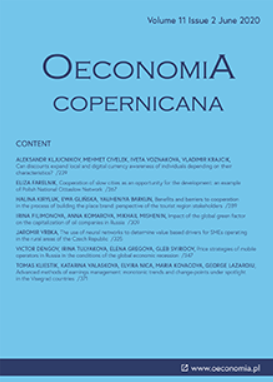Migration expectations and geography of post-Soviet Ukraine
Migration expectations and geography of post-Soviet Ukraine
Author(s): Yuriy Bilan, Bruno S. Sergi, Mihaela SimionescuSubject(s): Cultural history, Political history, Government/Political systems, Politics and society, Migration Studies
Published by: Instytut Badań Gospodarczych
Keywords: migration; post-Soviet states; culture; civilization; democracy; Ukraine;
Summary/Abstract: Research background: Starting from the concept of "post-colonial cultural dependence" and its significance for the contemporary Ukrainian society, imaginary geography is analyzed by describing the representations of the characteristics of countries, regions, places, and people living in these territories. Imaginary geography as a cultural structure implies material consequences. In the context of this paper, it is necessary to provide representations of potential migrants about the characteristics of the host countries, including details about population and the real economic, social and political opportunities after migration. The association between imaginary geography and migration in the expectations of postcolonial cultural dependence has been hardly analyzed before. Purpose of the article: The purpose of this paper is to analyze the effect of post-Soviet cultural dependence on migration expectations of the Ukrainian population from the postcolonial study perspective. Methods: The methodology is composed by two elements: a synthesis of neo-institutionalism and social constructivism. The paper hypothesizes that macro and meso level discourses in the emigration environment might have an impact on aspirations through perceptions of “migratory imaginations” and “geographical imaginations”. Findings & Value added: Findings are based on the cross-national study on external migration conducted within the EUmagine project. The findings show a strong correlation between migration expectations and perceptions of Ukrainians and post-Soviet cultural dependencies. In addition, the country represents a “post-imperial borderland” that results in the political split of the Ukrainian society. Our results might contribute to the establishment of connections between the imaginary geography of the Central, Western, and Southeastern regions of Ukraine and their migration expectations and orientations..
Journal: Oeconomia Copernicana
- Issue Year: 10/2019
- Issue No: 4
- Page Range: 603-625
- Page Count: 23
- Language: English

